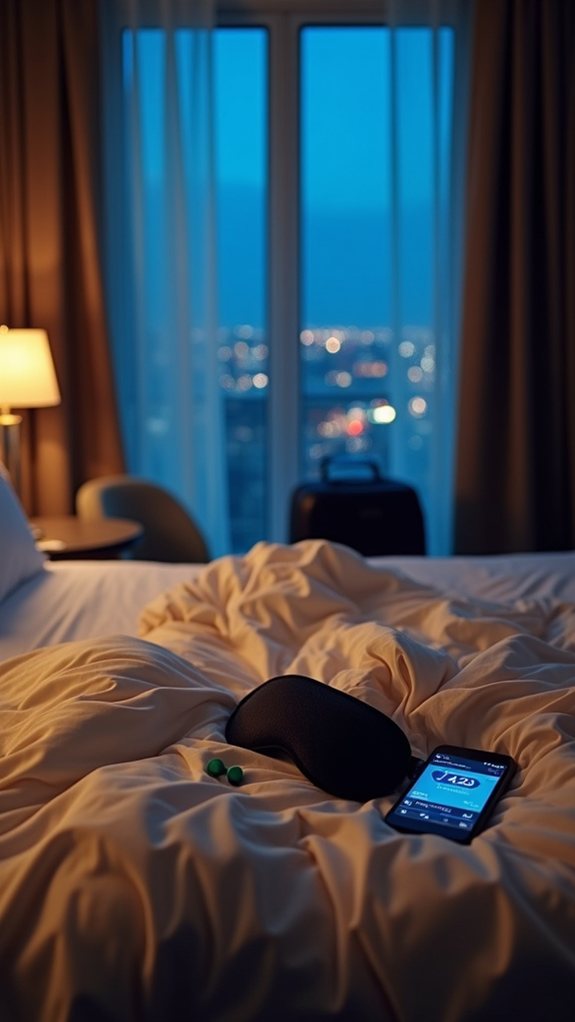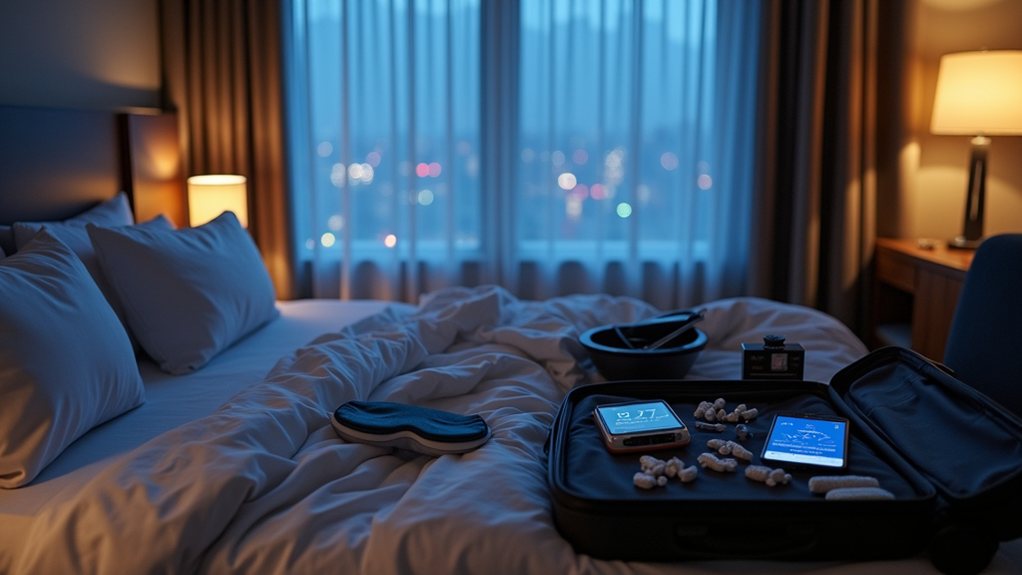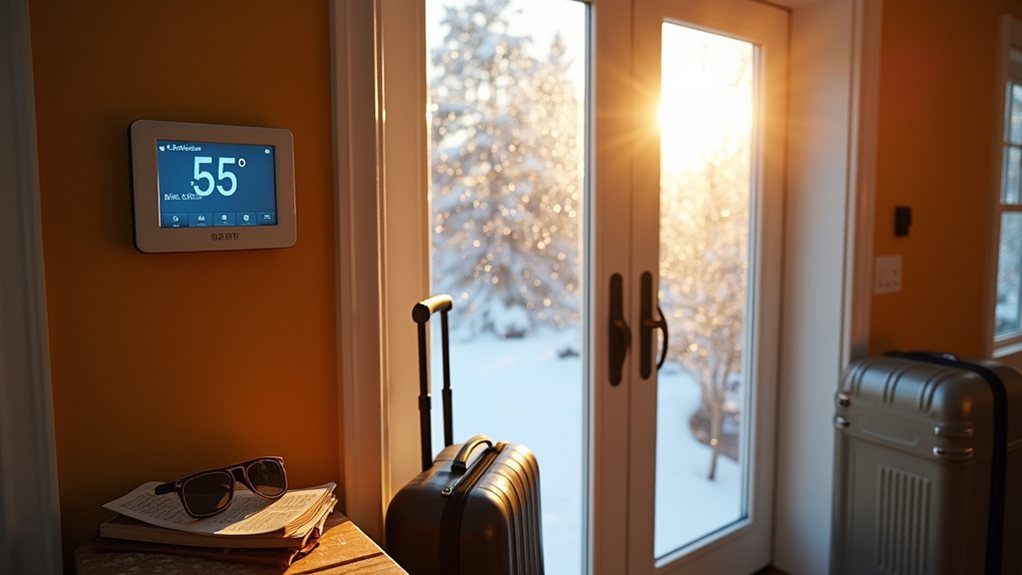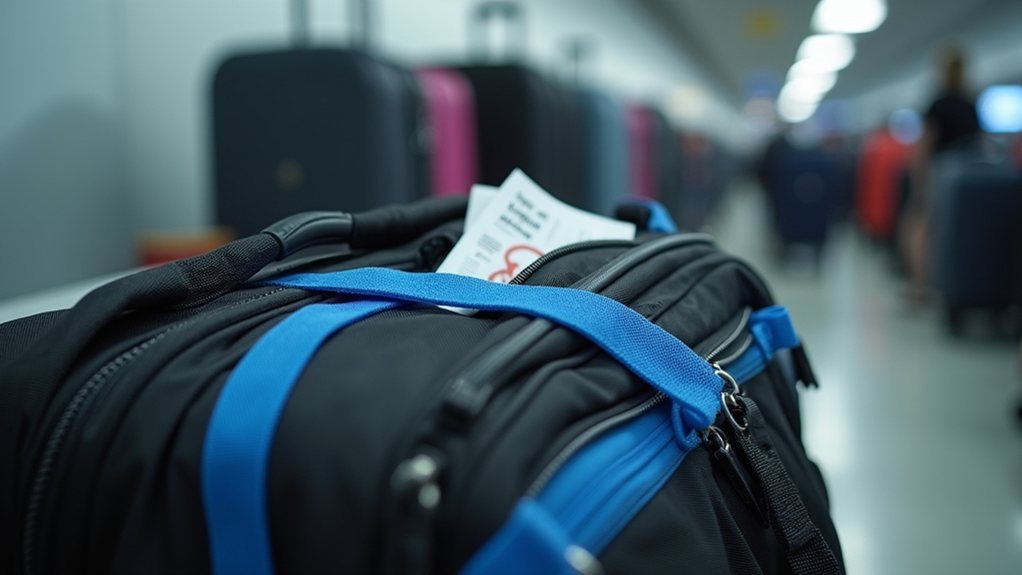Nearly 60% of travelers report significant sleep disturbances during their initial night away from home, a phenomenon scientists now attribute to our brain’s ancient survival mechanisms. The human mind, ever vigilant in unfamiliar surroundings, keeps one hemisphere partially awake—ready to respond to potential dangers lurking in strange environments. This “first-night effect,” paired with disrupted circadian rhythms and anxiety from displacement, explains why even the most comfortable hotel beds often leave travelers tossing and turning until dawn. What else might your brain be doing to sabotage your vacation rest?
Your Brain’s Built-In Travel Alarm

Why does a hotel bed, despite its luxurious threads and plush pillows, often lead to a night of tossing and turning? The answer lies not in the quality of accommodations but in how our brains respond to unfamiliar environments. Scientists have identified what they call the “first-night effect,” a peculiar phenomenon where half the brain remains vigilant in new surroundings, acting as a night watchman while the rest attempts to rest.
Your hotel luxury comes with a biological price: one hemisphere of your brain remains on guard duty while you sleep.
This biological response, once essential for our ancestors’ survival, now frustrates modern travelers crossing continents and time zones. Research shows that people with sleep disorders typically lose about an hour of sleep while traveling, with nearly half reporting worse sleep quality during trips. The embarrassment some feel about using sleep equipment in unfamiliar settings only compounds these challenges. Those with sleep apnea in particular find that transporting CPAP equipment presents significant challenges for 17% of travelers with the condition.
Long-haul travels wreak particular havoc on our sleep architecture, diminishing total sleep time and efficiency for at least 48 hours after arrival. Those eastbound red-eyes? They’re scientifically proven to cause more severe jet lag than westward travel, as our bodies struggle to adjust to earlier bedtimes rather than later ones. Recovery typically requires about a day per time zone crossed, turning that week-long European vacation into an exercise in fatigue management. Much like how The Jealous Curator transforms negative emotions into creative inspiration, travelers can reframe sleep challenges as opportunities to develop personalized rest rituals. Solo female travelers often report that creating safety routines helps not only with security concerns but also promotes better sleep by reducing anxiety in new environments.
Business travelers face even steeper challenges, with frequent flyers reporting increased symptoms of anxiety, depression, and trouble sleeping. The cumulative effect of constant displacement often manifests in poorer health habits and increased risks of lifestyle-related diseases. White noise apps can provide a consistent sound environment that masks disruptive noises in unfamiliar accommodations.
Yet savvy travelers aren’t powerless against these biological realities. Establishing consistent sleep routines despite changing locales, bringing familiar items from home (that ratty old pillowcase might be worth its weight in gold), and utilizing tools like earplugs and eye masks can help trick the brain into feeling more secure.
Skipping that tempting espresso after dinner and practicing relaxation techniques before bed further signals to the body that it’s safe to surrender to slumber, even when the surroundings insist otherwise.







